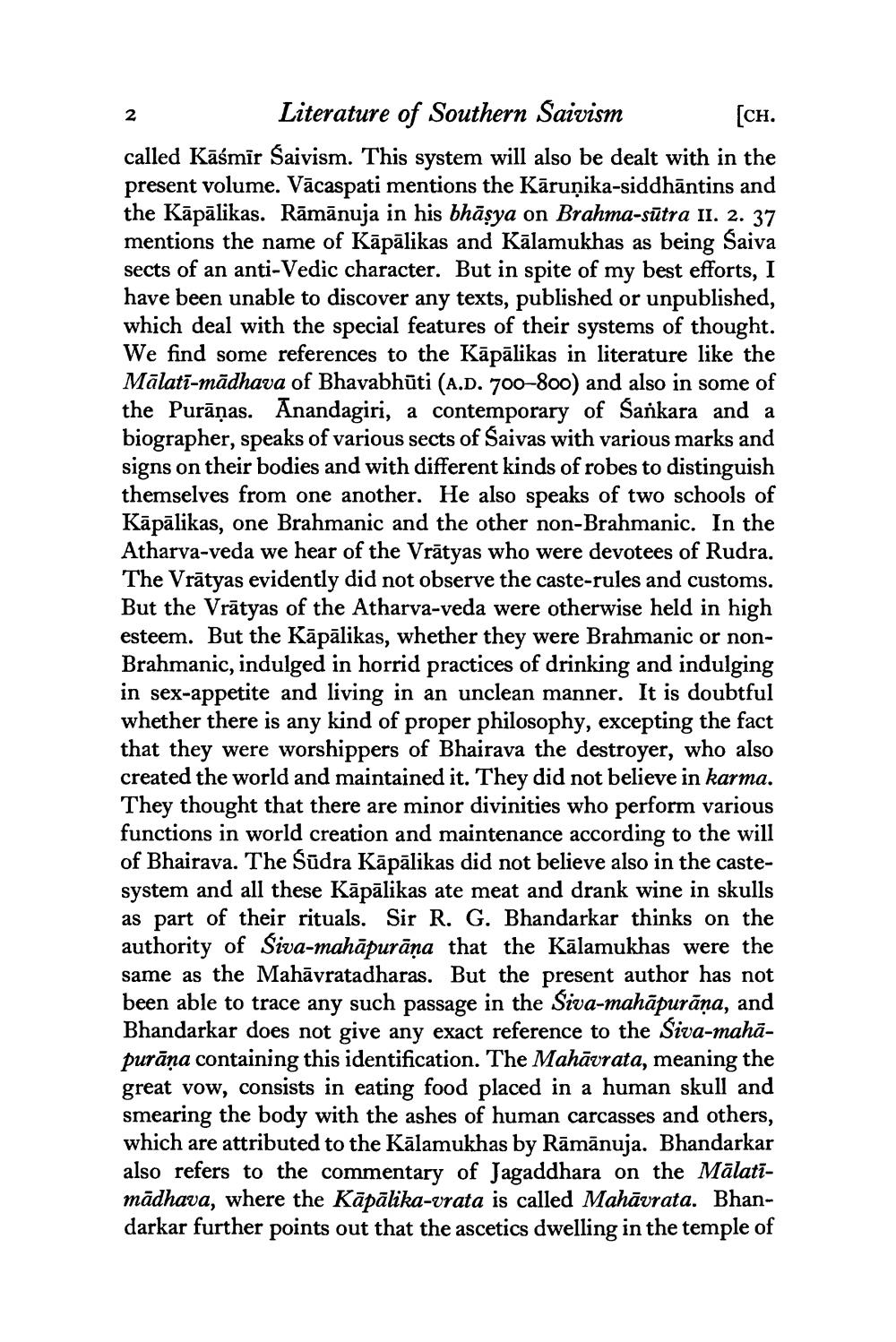________________
[CH.
Literature of Southern Saivism called Kāśmīr Saivism. This system will also be dealt with in the present volume. Vācaspati mentions the Kāruņika-siddhāntins and the Kāpālikas. Rāmānuja in his bhāsya on Brahma-sūtra 11. 2. 37 mentions the name of Kāpālikas and Kālamukhas as being Saiva sects of an anti-Vedic character. But in spite of my best efforts, I have been unable to discover any texts, published or unpublished, which deal with the special features of their systems of thought. We find some references to the Kāpālikas in literature like the Mālatī-mādhava of Bhavabhūti (A.D. 700-800) and also in some of the Purāņas. Anandagiri, a contemporary of Sankara and a biographer, speaks of various sects of Saivas with various marks and signs on their bodies and with different kinds of robes to distinguish themselves from one another. He also speaks of two schools of Kāpālikas, one Brahmanic and the other non-Brahmanic. In the Atharva-veda we hear of the Vrātyas who were devotees of Rudra. The Vrātyas evidently did not observe the caste-rules and customs. But the Vrātyas of the Atharva-veda were otherwise held in high esteem. But the Kāpālikas, whether they were Brahmanic or nonBrahmanic, indulged in horrid practices of drinking and indulging in sex-appetite and living in an unclean manner. It is doubtful whether there is any kind of proper philosophy, excepting the fact that they were worshippers of Bhairava the destroyer, who also created the world and maintained it. They did not believe in karma. They thought that there are minor divinities who perform various functions in world creation and maintenance according to the will of Bhairava. The Sūdra Kāpālikas did not believe also in the castesystem and all these Kāpālikas ate meat and drank wine in skulls as part of their rituals. Sir R. G. Bhandarkar thinks on the authority of Siva-mahāpurāņa that the Kālamukhas were the same as the Mahāvratadharas. But the present author has not been able to trace any such passage in the Siva-mahāpurāņa, and Bhandarkar does not give any exact reference to the Siva-mahāpurāņa containing this identification. The Mahāvrata, meaning the great vow, consists in eating food placed in a human skull and smearing the body with the ashes of human carcasses and others, which are attributed to the Kālamukhas by Rāmānuja. Bhandarkar also refers to the commentary of Jagaddhara on the Mālatimādhava, where the Kāpālika-vrata is called Mahāvrata. Bhandarkar further points out that the ascetics dwelling in the temple of




